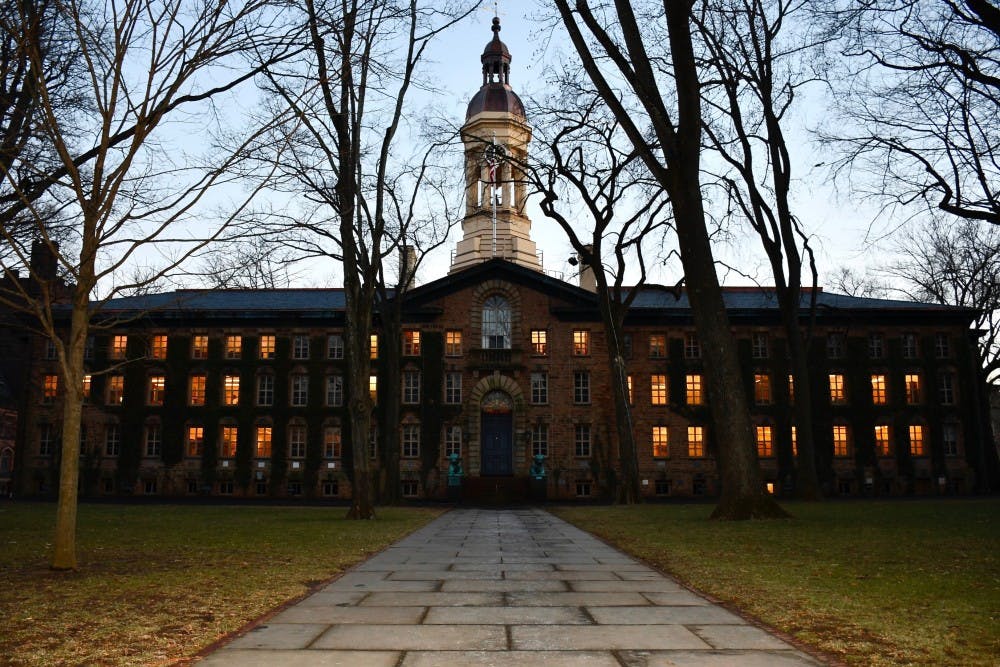Facing economic upheaval from COVID-19 disruptions, the University announced yesterday new policies regarding faculty, including a salary freeze. However, the University is the only Ivy League university not to have yet granted tenure clock extensions to junior faculty, although proposals for such a plan are being prepared.
In an April 8 email to University faculty and staff, Provost Debbie Prentice outlined immediate steps that the University is taking to mitigate the economic impact of the coronavirus. These include stricter hiring guidelines and budgetary restrictions.
The University is suspending faculty and staff salary increases, unless the increases were previously agreed upon.
In addition, the email explained that only in rare exceptions will the University be making any new hires, even for open vacancies.
“Our goal is to protect the positions of those currently working at Princeton,” Prentice said.
Assistant Professor of History Eleanor Hubbard believes that the University’s wealth should allow them to continue hiring talented faculty, as there will be many graduate students and junior faculty with few job prospects.
“I think that Princeton University should try to continue hiring in the next year, because there's going to be a glut of talented people on the market whose careers are otherwise gonna have nowhere at all to go. And for all the graduate students who are finishing their dissertations right now, this is going to be completely catastrophic,” she said. “And for a really deep pocketed university like Princeton, this is an opportunity for it to really have its pick of people who are on the job market.”
In addition to not hiring new people, Prentice asked departments to become less dependent on temporary hourly or contracted workers as of June 2 and to cut non-essential spending.

“Understanding that our operating picture will look very different heading into the summer, we are asking managers to start planning now for a decreased dependence on these positions beginning June 2nd ... Every dollar we can save now will give us more flexibility to support our core priorities as the long-term economic picture becomes clearer,” Prentice wrote.
Prentice acknowledged that universities across the country need to rethink their operations in light of current economic uncertainty, but that the University is well-positioned to do so.
“Because of our strong endowment, the generosity of our community, and the work of many of you, we are fortunate to face these new challenges from a solid budgetary position,” she wrote.
Professor of History and Public Affairs Keith Wailoo supports the University's decision to restrict budgets.

"In addition to the human tragedies of this terrible pandemic, the economic implications are troubling. Prudent planning and belt tightening is the smart thing to do given the uncertain road ahead,” he wrote in an email to The Daily Princetonian.
Looking past immediate economic effects, the University is also considering how to handle tenure tracks for junior faculty who have faced disruptions in teaching due to the coronavirus.
Though the University has not yet made a decision on such a policy, the Dean of the Faculty is preparing a proposal for term extensions for tenure-track faculty. The University expects to make an announcement on their decision by the end of April, according to Deputy University Spokesperson Mike Hotchkiss in an email to the ‘Prince.’
“Given the circumstances and based on input from department chairs across the University, the Dean of the Faculty is working on a proposal for an extension of term for tenure-track faculty to mitigate the effects of the current public health crisis on their research and professional development,” wrote Hotchkiss.
Before being enacted, any policy regarding tenure clock extensions would first require review and approval from the Faculty Advisory Committee on Policy and then the review and affirmative vote of the full faculty.
A statement from the American Sociological Association, endorsed by the American Psychological Association and dozens of other academic communities, supports year-long tenure clock extensions as professors have faced unexpected challenges in terms of child care and student support.
“It seems inevitable that these circumstances will affect student evaluations of teaching in ways that may not accurately reflect the faculty member’s teaching under normal conditions,” read their March 23 statement on the subject.
Hubbard agreed, saying “[COVID-19] has really disrupted my research because I have three young children at home and now very little library access.”
While she supports tenure clock extensions and believes the University will enact them, Hubbard worries that they will exacerbate current gender inequalities in hiring.
“I think that this is going to be a disaster for female faculty in general because tenure track women who have children are less likely to have, for example, a stay-at-home spouse at home, who's able to shoulder the majority of the burden of childcare,” she said. “So I think probably the University is going to give the same extension to everybody. And that will end up making it relatively harder for women to get tenure.”








